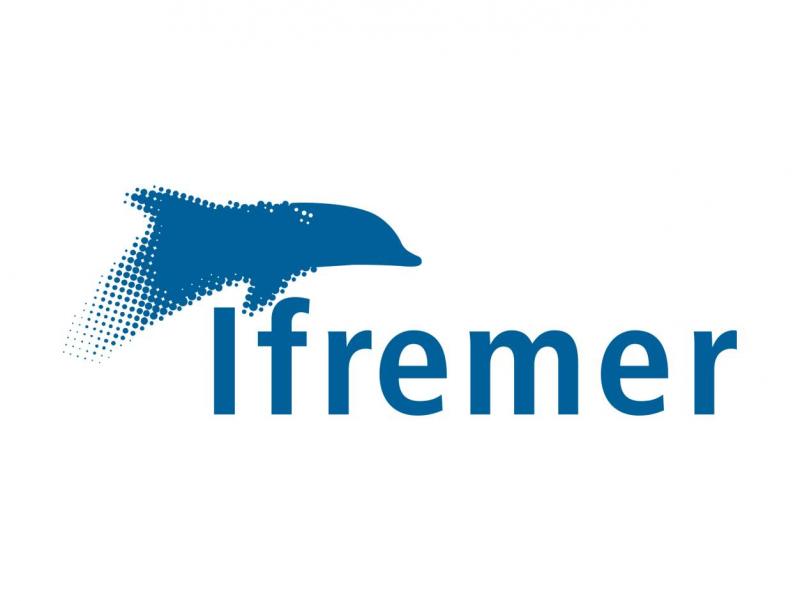Holobiome et changement climatique : le rôle du microbiome dans les mécanismes d'adaptation des écosystèmes forestiers // Holobiome and climate change: the role of the microbiome in adaptation mechanisms of forest ecosystems
|
ABG-130284
ADUM-64211 |
Thesis topic | |
| 2025-04-01 |
Université de Picardie - Jules Verne
Amiens - France
Holobiome et changement climatique : le rôle du microbiome dans les mécanismes d'adaptation des écosystèmes forestiers // Holobiome and climate change: the role of the microbiome in adaptation mechanisms of forest ecosystems
- Ecology, environment
Changement climatique, microbiome du sol, plasticité phénotypique, stress thermique, régénération forestière, interactions plante-microorganismes
Climate change, Soil microbiome, Phenotypic plasticity, Thermic stress, Forest regeneration, Plant-microorganismes interactions
Climate change, Soil microbiome, Phenotypic plasticity, Thermic stress, Forest regeneration, Plant-microorganismes interactions
Topic description
Les forêts tempérées subissent des pressions croissantes sous l'effet du changement climatique, mettant en péril leur capacité de régénération. Parmi les facteurs clés de leur résilience, le microbiome du sol joue un rôle essentiel en régulant l'absorption des nutriments et la réponse des plantules aux stress environnementaux. Ce projet de thèse explore comment les communautés microbiennes influencent la croissance et la physiologie de Fagus sylvatica et Acer pseudoplatanus, en s'appuyant sur trois approches : (1) une analyse des interactions plante-microbiome le long d'un gradient latitudinal, afin de comprendre comment la diversité et la composition des communautés microbiennes du sol varient avec le climat et influencent les traits phénotypiques des plantules ; (2) une expérimentation en serre visant à tester si la diversité microbienne et l'exposition à des microbiomes pré-adaptés aux climats chauds améliorent la tolérance des plantules au stress thermique ; (3) une modélisation des trajectoires d'adaptation des forêts en intégrant des données écologiques, microbiologiques et génétiques. En combinant observations de terrain et expérimentations en serre, cette thèse propose une approche intégrative pour comprendre les mécanismes d'adaptation et contribuer à la gestion durable des écosystèmes forestiers face aux changements globaux.
------------------------------------------------------------------------------------------------------------------------------------------------------------------------
------------------------------------------------------------------------------------------------------------------------------------------------------------------------
Temperate forests are facing increasing pressures due to climate change, threatening their regenerative capacity. Among the key factors of their resilience, the soil microbiome plays a crucial role by regulating nutrient uptake and the response of seedlings to environmental stress. This PhD project explores how microbial communities influence the growth and physiology of Fagus sylvatica and Acer pseudoplatanus, using three approaches:
(1) an analysis of plant–microbiome interactions along a latitudinal gradient, to understand how the diversity and composition of soil microbial communities vary with climate and influence the phenotypic traits of seedlings; (2) a greenhouse experiment to test whether microbial diversity and exposure to microbiomes pre-adapted to warmer climates enhance seedling tolerance to heat stress; (3) a modeling of forest adaptation trajectories by integrating ecological, microbiological, and genetic data. By combining field observations and greenhouse experiments, this thesis offers an integrative approach to understanding adaptation mechanisms and contributing to the sustainable management of forest ecosystems in the face of global change.
------------------------------------------------------------------------------------------------------------------------------------------------------------------------
------------------------------------------------------------------------------------------------------------------------------------------------------------------------
Début de la thèse : 01/10/2025
WEB : https://www.u-picardie.fr/edysan/
------------------------------------------------------------------------------------------------------------------------------------------------------------------------
------------------------------------------------------------------------------------------------------------------------------------------------------------------------
Temperate forests are facing increasing pressures due to climate change, threatening their regenerative capacity. Among the key factors of their resilience, the soil microbiome plays a crucial role by regulating nutrient uptake and the response of seedlings to environmental stress. This PhD project explores how microbial communities influence the growth and physiology of Fagus sylvatica and Acer pseudoplatanus, using three approaches:
(1) an analysis of plant–microbiome interactions along a latitudinal gradient, to understand how the diversity and composition of soil microbial communities vary with climate and influence the phenotypic traits of seedlings; (2) a greenhouse experiment to test whether microbial diversity and exposure to microbiomes pre-adapted to warmer climates enhance seedling tolerance to heat stress; (3) a modeling of forest adaptation trajectories by integrating ecological, microbiological, and genetic data. By combining field observations and greenhouse experiments, this thesis offers an integrative approach to understanding adaptation mechanisms and contributing to the sustainable management of forest ecosystems in the face of global change.
------------------------------------------------------------------------------------------------------------------------------------------------------------------------
------------------------------------------------------------------------------------------------------------------------------------------------------------------------
Début de la thèse : 01/10/2025
WEB : https://www.u-picardie.fr/edysan/
Funding category
Funding further details
Financement d'un établissement public Français
Presentation of host institution and host laboratory
Université de Picardie - Jules Verne
Institution awarding doctoral degree
Université de Picardie - Jules Verne
Graduate school
585 Sciences, Technologie, Santé
Candidate's profile
Le/la candidat·e devra être titulaire d'un master en écologie, biologie des organismes, biologie végétale, ou dans un domaine connexe. Une solide formation en écologie fonctionnelle et en biostatistiques est attendue. Une expérience préalable en microbiologie environnementale, écophysiologie végétale ou en analyse de données de séquençage (métabarcoding, bioinformatique) serait un atout. Le/la candidat·e doit faire preuve d'autonomie, de rigueur scientifique, d'un bon esprit de synthèse, et avoir de bonnes capacités rédactionnelles. La capacité à travailler en équipe dans un cadre interdisciplinaire et à l'international est essentielle. Une bonne maîtrise de l'anglais scientifique est requise.
The candidate should hold a Master's degree in ecology, plant biology, environmental sciences, or a related field. A strong background in functional ecology and biostatistics is expected. Previous experience in environmental microbiology, plant ecophysiology, or bioinformatic analysis of microbial data (e.g., metabarcoding) would be advantageous. The candidate should demonstrate scientific rigor, autonomy, teamwork skills, and good writing abilities. An aptitude for interdisciplinary and international collaboration is essential. Proficiency in scientific English is required.
The candidate should hold a Master's degree in ecology, plant biology, environmental sciences, or a related field. A strong background in functional ecology and biostatistics is expected. Previous experience in environmental microbiology, plant ecophysiology, or bioinformatic analysis of microbial data (e.g., metabarcoding) would be advantageous. The candidate should demonstrate scientific rigor, autonomy, teamwork skills, and good writing abilities. An aptitude for interdisciplinary and international collaboration is essential. Proficiency in scientific English is required.
2025-04-15
Apply
Close
Vous avez déjà un compte ?
Nouvel utilisateur ?
More information about ABG?
Get ABG’s monthly newsletters including news, job offers, grants & fellowships and a selection of relevant events…
Discover our members
 Nokia Bell Labs France
Nokia Bell Labs France  Aérocentre, Pôle d'excellence régional
Aérocentre, Pôle d'excellence régional  MabDesign
MabDesign  SUEZ
SUEZ  Tecknowmetrix
Tecknowmetrix  CESI
CESI  CASDEN
CASDEN  Groupe AFNOR - Association française de normalisation
Groupe AFNOR - Association française de normalisation  ANRT
ANRT  ONERA - The French Aerospace Lab
ONERA - The French Aerospace Lab  TotalEnergies
TotalEnergies  Laboratoire National de Métrologie et d'Essais - LNE
Laboratoire National de Métrologie et d'Essais - LNE  Ifremer
Ifremer  ADEME
ADEME  MabDesign
MabDesign  Institut Sup'biotech de Paris
Institut Sup'biotech de Paris  ASNR - Autorité de sûreté nucléaire et de radioprotection - Siège
ASNR - Autorité de sûreté nucléaire et de radioprotection - Siège  Généthon
Généthon  PhDOOC
PhDOOC
-
JobRef. 129945, Bretagne , France
 IFREMER
IFREMERIngénieur en modélisation - couplage et valorisation H/F
Scientific expertises :Engineering sciences - Digital
Experience level :Confirmed
-
JobRef. 130080, Ile-de-France , FranceAgence Nationale de la Recherche
Chargé ou chargée de projets scientifiques bioéconomie H/F
Scientific expertises :Biochemistry
Experience level :Confirmed
-
Thesis topicRef. 130227, Pays de la Loire , France
 CEISAM - UMR CNRS 6230
CEISAM - UMR CNRS 6230Développement de Sondes Fluorescentes Multimodales pour l’Assistance à la chirurgie et la Médecine Personnalisée
Scientific expertises :Chemistry - Biology - Health, human and veterinary medicine







